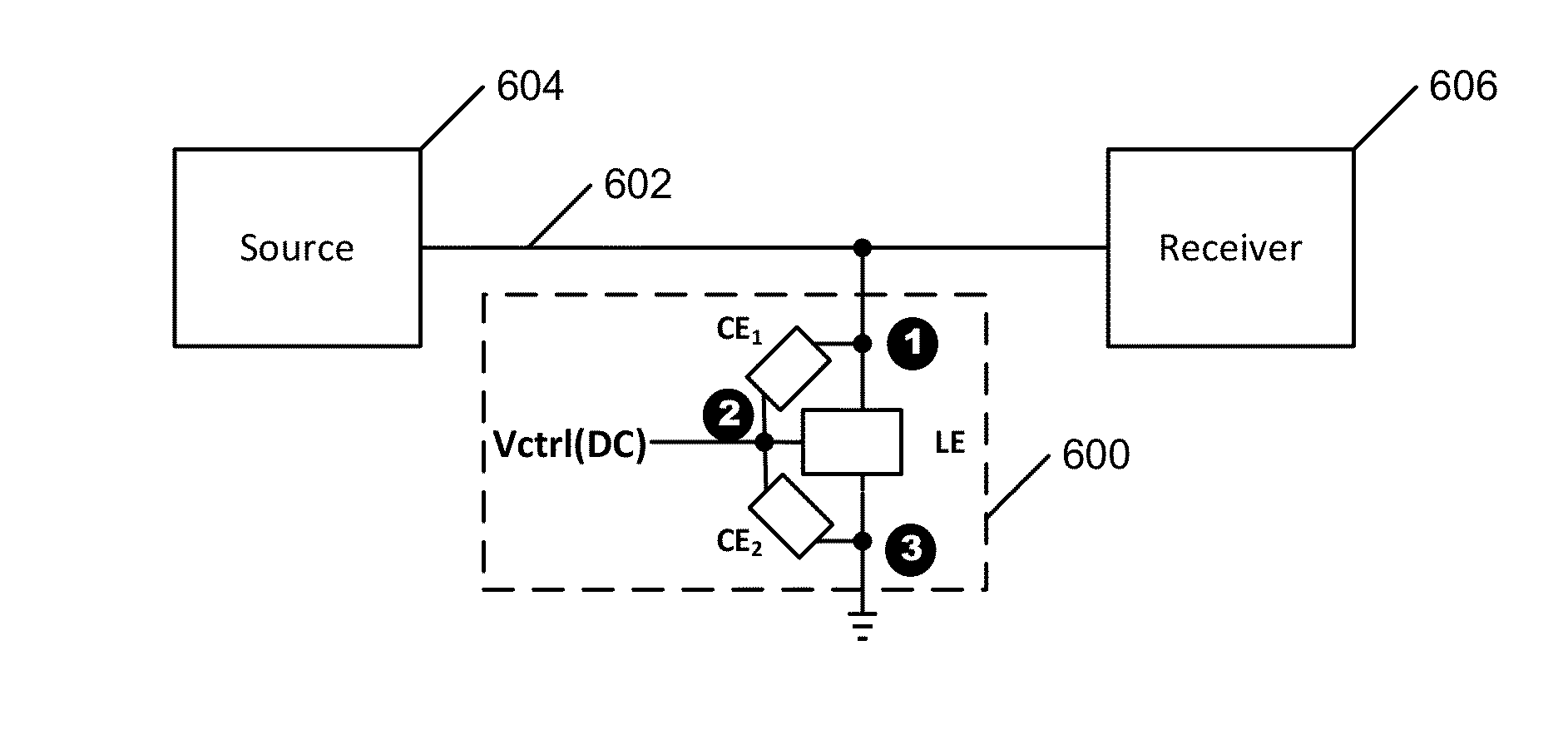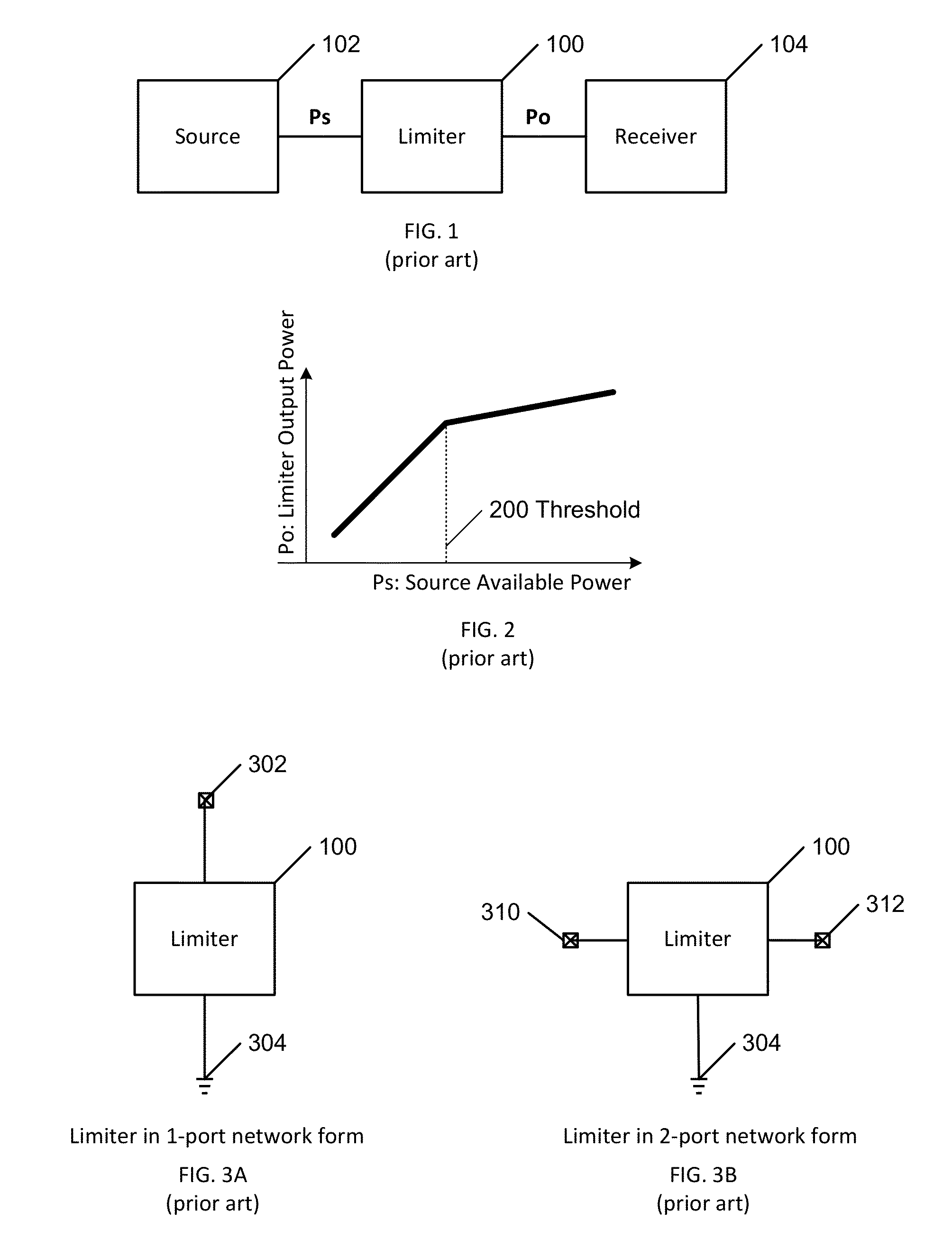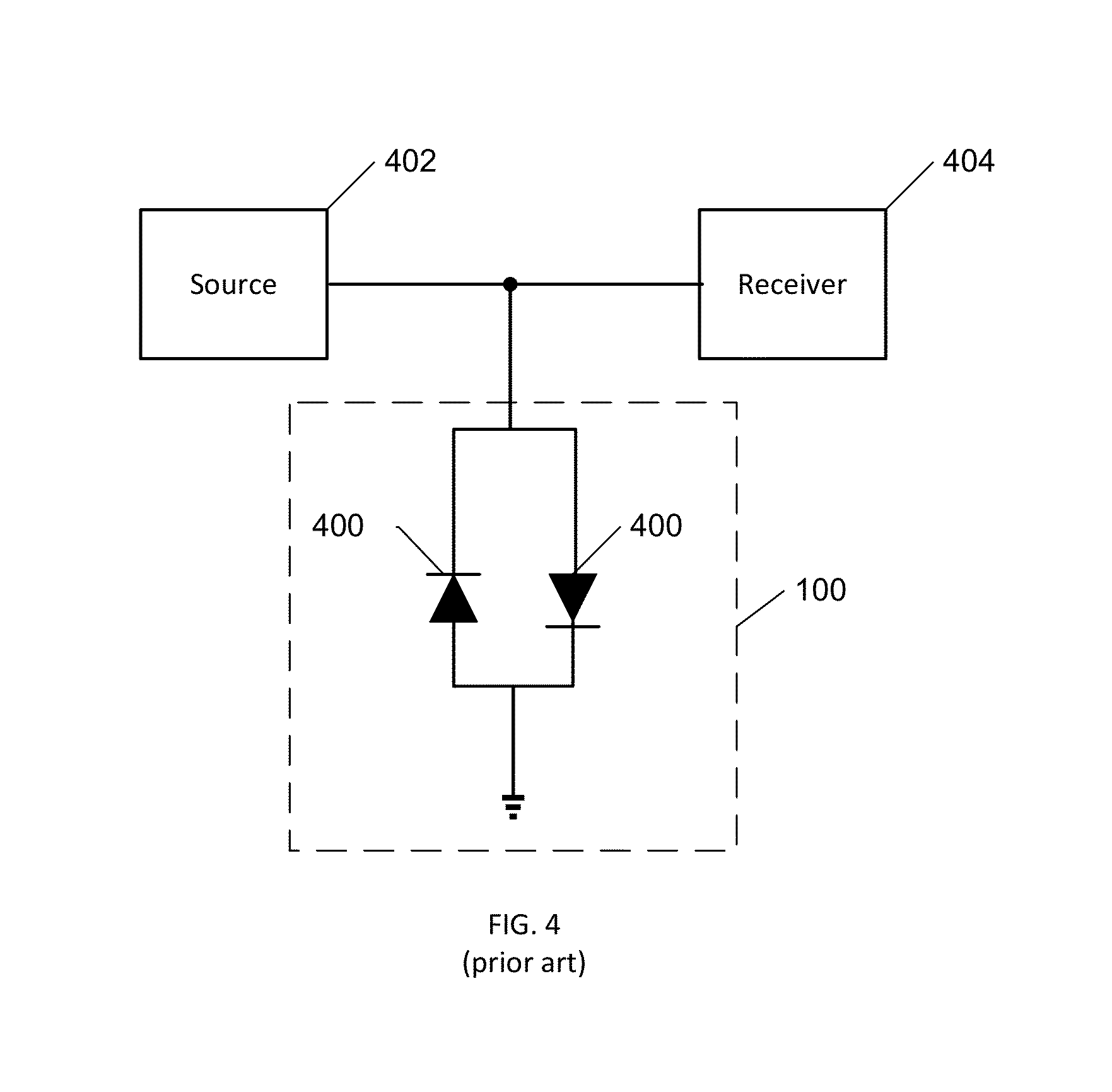Self-activating adjustable power limiter
a power limiter and self-activating technology, applied in the field of electronic circuitry, can solve problems such as limiting the signal on the signal line from fully propagating from the source to the receiver
- Summary
- Abstract
- Description
- Claims
- Application Information
AI Technical Summary
Benefits of technology
Problems solved by technology
Method used
Image
Examples
Embodiment Construction
[0068]FIG. 6A is a circuit diagram of a generalized embodiment of the invention. A self-activating, adjustable threshold limiter 600 in accordance with the present invention includes a limiting element LE. A first coupling element CE1 is electrically connected from a signal node 1 of LE to a control input 2 of LE. A second coupling element CE2 is electrically connected from the control input 2 of LE to a second node 3 of LE (nominally an output node). An initial bias (control) voltage Vctrl is also supplied to the control input 2 of LE to set the limiting threshold for the limiter 600.
[0069]The limiting element LE is preferably a voltage controlled element that shows a high degree of isolation between input and output, has an essentially non-conducting (“off”) state if the voltage at the control input 2 is less than a set value, has a “variable impedance” or “controlled impedance” state in which it behaves as a voltage controlled current source in response to application of a select...
PUM
| Property | Measurement | Unit |
|---|---|---|
| voltage amplitude | aaaaa | aaaaa |
| voltage amplitude | aaaaa | aaaaa |
| resistance | aaaaa | aaaaa |
Abstract
Description
Claims
Application Information
 Login to View More
Login to View More - R&D
- Intellectual Property
- Life Sciences
- Materials
- Tech Scout
- Unparalleled Data Quality
- Higher Quality Content
- 60% Fewer Hallucinations
Browse by: Latest US Patents, China's latest patents, Technical Efficacy Thesaurus, Application Domain, Technology Topic, Popular Technical Reports.
© 2025 PatSnap. All rights reserved.Legal|Privacy policy|Modern Slavery Act Transparency Statement|Sitemap|About US| Contact US: help@patsnap.com



